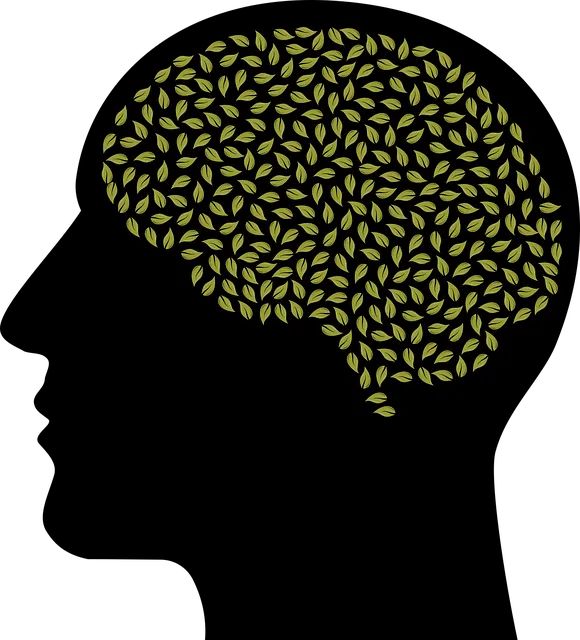Mood regulation is a multifaceted process emphasizing emotional well-being, according to the Kaiser Permanente Mental Health Access Center Boulder. They offer counseling, workshops, and programs tailored to individual needs, combining evidence-based practices for self-discovery and emotional control. Techniques like cognitive restructuring, social skills training, stress management, and lifestyle adjustments empower individuals to navigate emotions, reduce stress, and maintain stable moods through professional guidance and personal resilience.
Mood regulation is a vital skill, encompassing emotional balance and resilience. In today’s fast-paced world, understanding and managing our moods can be transformative. This article explores various strategies for navigating emotional landscapes, highlighting the importance of holistic well-being. We delve into evidence-based techniques, from cognitive therapies that reshape thinking to lifestyle adjustments fostering stability. Additionally, we spotlight the Kaiser Permanente Mental Health Access Center Boulder as a pivotal hub offering support and resources for those seeking mood regulation guidance.
- Understanding Mood Regulation: Unraveling Emotional Balance
- Kaiser Permanente Mental Health Access Center Boulder: A Hub for Support
- Cognitive Techniques: Shaping Your Mind for Stability
- Lifestyle Adjustments: Cultivating Resilience and Well-being
Understanding Mood Regulation: Unraveling Emotional Balance

Mood regulation is a complex process that involves understanding and managing our emotional state. It’s about achieving a sense of emotional balance, which is key to overall well-being. The Kaiser Permanente Mental Health Access Center in Boulder offers valuable insights into this domain, emphasizing that emotions are a natural part of life but learning to navigate them is essential for mental health. By unraveling the complexities of mood regulation, individuals can gain control over their emotional responses and foster resilience.
Self-care practices play a pivotal role here. Engaging in activities that nurture both mind and body, such as exercise, meditation, or creative pursuits, can significantly enhance one’s ability to manage stress and anxiety relief. Additionally, communication strategies are powerful tools; expressing feelings openly and effectively can help process difficult emotions and foster meaningful connections with others. These practices, combined with professional guidance when needed, empower individuals to lead more fulfilling lives by maintaining emotional equilibrium.
Kaiser Permanente Mental Health Access Center Boulder: A Hub for Support

The Kaiser Permanente Mental Health Access Center Boulder stands as a beacon for those seeking support in navigating their emotional well-being. This hub offers a comprehensive array of services designed to empower individuals in managing and improving their mental health. Here, one can access various resources, including counseling sessions, workshops on stress management and resilience, and programs focused on enhancing self-esteem and mastering mind over matter principles.
The center’s dedicated team comprises mental health professionals who provide personalized guidance tailored to individual needs. By combining evidence-based practices and a nurturing environment, the Access Center fosters a supportive space where people can learn effective emotional well-being promotion techniques, develop coping strategies, and embark on journeys of self-discovery and improvement.
Cognitive Techniques: Shaping Your Mind for Stability

Cognitive techniques offer powerful tools for regulating mood and fostering mental stability. These strategies focus on challenging and reshaping negative thought patterns, a core aspect often addressed by professionals at the Kaiser Permanente Mental Health Access Center Boulder. By understanding and modifying how we interpret events, individuals can gain better control over their emotions. This process involves identifying distorted thoughts, replacing them with more realistic ones, and developing coping mechanisms to navigate challenging situations.
One effective approach is cognitive restructuring, which encourages a more balanced perspective. Social Skills Training and Stress Management programs designed within Mental Health Education can enhance this process by teaching individuals practical skills to manage stress and improve social interactions. These techniques empower people to reframe negative experiences, promoting emotional resilience and overall well-being.
Lifestyle Adjustments: Cultivating Resilience and Well-being

Making lifestyle adjustments is a powerful tool for mood regulation. At the Kaiser Permanente Mental Health Access Center Boulder, experts emphasize the importance of cultivating resilience and well-being through everyday habits. This includes engaging in regular physical activity, adopting a balanced diet, and prioritizing adequate sleep – all of which contribute to mental wellness.
Additionally, communication strategies and self-care practices play a significant role. Practicing mindfulness, journaling, and connecting with loved ones can help individuals process emotions, reduce stress, and foster positive relationships. By integrating these lifestyle adjustments into daily routines, individuals can enhance their ability to navigate life’s challenges and maintain a stable mood.
In conclusion, maintaining emotional balance is a multifaceted journey that involves understanding our moods, accessing support from centers like the Kaiser Permanente Mental Health Access Center Boulder, employing cognitive techniques for mindset shifts, and adopting lifestyle adjustments to foster resilience. By integrating these strategies, individuals can navigate life’s challenges with greater emotional stability and overall well-being. The resources available through such centers play a pivotal role in empowering folks to take control of their mental health and embrace a more vibrant, balanced life.






